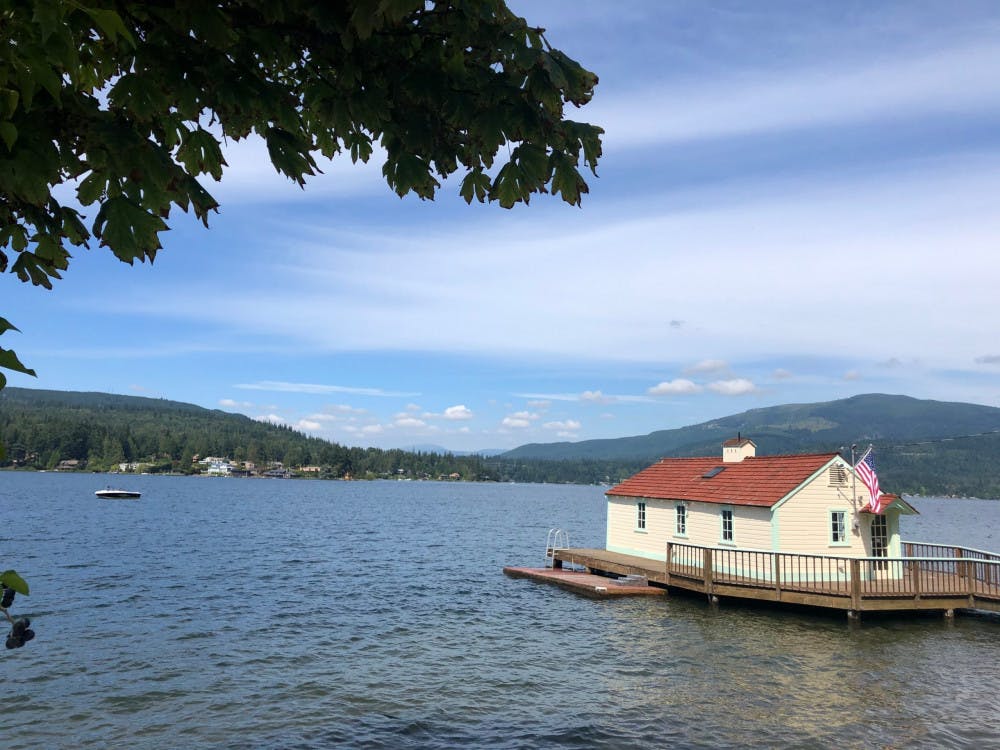The Lake Whatcom Management Program has been extended to protect the lake and surrounding watershed.

Whatcom County residents can enjoy Lake Whatcom for another four years after the Bellingham City Council unanimously approved a new work plan set to protect the lake from harm.
The Lake Whatcom Management Program presented its 2020-2024 Lake Whatcom work plan to protect the environmental health of the watershed, drinking water and surrounding habitats.
“This is a team effort,” Clare Fogelsong, Bellingham’s environmental resource manager, said. “If it weren’t for the work of, I don’t know how many other staff, this wouldn’t be nearly as informative as it is.”
The Lake Whatcom Management Program is a collaboration between the City of Bellingham, Whatcom County and the Lake Whatcom Water and Sewer District, that use their unique jurisdictions to protect Lake Whatcom.
According to the 2020-2024 work plan, Lake Whatcom is the main water source for roughly 100,000 residents.
The Lake Whatcom Management Program comprises 10 unique areas that all emphasize their own objectives for the Whatcom County and Bellingham community.
The ten program areas are: Land preservation, stormwater, land use, monitoring and data, hazardous waste, recreation, aquatic invasive species, utilities and transportation, education and engagement, and administration.
The new work plan has a fiscal impact of $35 million over the next five years.
This budget guides members of Lake Whatcom Management Program’s decision making, however each jurisdiction manages their own funding.
Within the land preservation program, the Lake Whatcom Management Program looks to protect land that could potentially disturb fish and wildlife habitats if it were to be built on.
With a portion of the allocated funds, the program will purchase and restore properties to help preserve the natural ecosystem.
The stormwater program has reported an excess of phosphorus in Lake Whatcom, which can deplete the lake’s oxygen levels through an increase in algae blooms. Through the process of eutrophication, algae blooms rapidly, blocking the sunlight from plants below which leads to their’s and the algae death. When decomposing, the body of water has an increase in carbon dioxide, and little oxygen left for life.
“The basic focus here will continue to be the treatment of phosphorus and bacteria, and the reduction and prevention of those inputs into the lake,” Fogelsong said.
Last year, the Lake Whatcom Management Program held a hazardous waste collection for community members living within the watershed. They state that they intend on doing this collection within the new work plan.
Fogelsong emphasized the importance of their education and engagement program when communicating with watershed residents.
“Education services all the other programs areas,” said Fogelsong. “We couldn’t be as successful within our program areas without the support of our education team. They are very important to our success.”
Some notable projects of the program are their community surveys, disbursement of informational pamphlets to watershed residents and overall contribution to the increase in public knowledge.
City Councilmember Pinky Vargas, a resident within the watershed who represents the 4th ward, said the educational program was helpful.
“Thank you all for putting out the watershed guide,” Vargas said. “When I first moved into the watershed I didn’t know what my rules and regulations were and I think that’s a very important element.”
The 2020-2024 work plan aims to continue to promote a healthier environment for Lake Whatcom and help many Bellingham residents continue to get clean, fresh water.
“We’ve got a long ways to go,” said City Councilmember Gene Knutson, who represents the 2nd ward. “We are making progress, and I’m really glad I’ve been here long enough to see how much progress we’re really making.”





